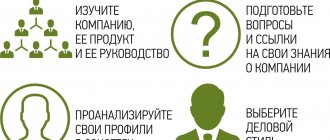Anatomy of stress. We talk to a psychologist about how to stop worrying and take life into your own hands
“You shouldn't be afraid of stress. Only the dead do not have it. Stress must be managed. Controlled stress carries the aroma and taste of life,” said biologist and author of the theory of stress Hans Selye.
“Stress” translated from English means “tension, depression.” This condition occurs in difficult situations as a physical, mental, emotional and chemical reaction of the body to something that frightens, irritates or threatens the person.
A little stress is even necessary for a person; at this time, adrenaline is released into the blood, which makes us not be afraid and act. But you cannot always be in this state: the body, intensively wasting its strength, quickly becomes exhausted.
All people react differently to stress. The same factor acts like a “magic kick” on one person, and lands the other in a hospital bed.
Lead to stress
- Conflicts – at work, at home, with friends or even with strangers
- Dissatisfaction with your appearance, others, your work, self-realization, environment, standard of living
- Long-term absence of vacation and proper rest from everyday activities
- Long-term chronic diseases, as well as illnesses of relatives
- Overweight
- Death of a relative, friend, acquaintance
- Problems in your sex life
- Frequent fears, especially of fatal diseases, the opinions of other people, old age, and a small pension
- Loneliness
- Abrupt change of place of residence or work
Phases of stress
Stress has its phases:
- An alarm reaction during which the body mobilizes its defenses and resources. If you cannot cope with stress during this period, then the second phase begins.
- Adaptation to stress. But the process of adaptation to stress, alas, absorbs energy, which is already in short supply. This state of “no war, no peace” can last a long time, but not indefinitely. And then the third stage comes.
- Exhaustion. At this time, the body is especially vulnerable to various diseases.
How the body can react to stress
Unreasonable attacks of irritability, anger, discontent. Or, on the contrary, lethargy, depression, reluctance to communicate with people, even with family and friends.
Attacks of fear, panic, memory problems.
Lack of trust in yourself and others and a frequent desire to cry.
Lack of appetite or, conversely, excessive gluttony.
Nervous tics and other strange desires, for example: biting your nails, biting your lips.
Increased sweating, indigestion, itching in different areas of the body, headache, palpitations, discomfort in the chest (“heaviness in the chest”).
A person under stress begins to develop an interest in alcohol, drugs, smoking, computer and other games, although previously he was not particularly interested in all of this.
What to do: four steps
1. Take your mind off the source of stress. It can be difficult. Try holding your breath. What does a person think about when he begins to feel short of breath? Just about breathing again. And not about conflicts at work and troubles at home.
And then, as you exhale, relax and with the next inhalation, lean back slightly, lift your chin and tilt your head back slightly. Notice how the detached body position begins to change your view of the situation. Imagine that you are watching what is happening from the outside.
2. Decide on a solution. When you calmly and dispassionately view a situation as an external phenomenon, you take control of it and can make an informed decision.
What result are you expecting? What do you want to receive? Exactly what you want, this is important! Build the phrase: “I want...”, not “I don’t want...”.
3. Take action. Between intention and result there must be action. No action - no result. When someone says that they failed to cope with a situation due to a lack of determination, this does not mean that this person is indecisive. He can feel calm and confident, for example, while driving a car. All he needs is to “take” this experience from where he has it and “transfer” it to where he needs it.
4. Master your achievements. Experience is not what happened to a person, but how he uses it. Many people remember moments of failure with amazing accuracy. Much fewer people notice situations of success and methodically recreate the conditions for their repetition. Analyze and use the successful experience gained for the future.
The main thing that we must understand very clearly is that stress is a psychological reaction to an event, and not the event itself.
A positive parable to end
One African king had a close friend with whom he grew up together. This friend, when considering any situation that ever happened in his life, be it positive or negative, had a habit of saying: “That's good!”
One day the king was hunting. A friend used to prepare and load guns for the king. Apparently he did something wrong while preparing one of the guns. When the king took his friend's gun and fired it, his thumb was torn off. Investigating the situation, the friend, as usual, said: “This is good!” To which the king replied: “No, this is not good!”, and ordered his friend to be sent to prison.
About a year passed, the king hunted in an area in which, in his opinion, he could be completely fearless. But the cannibals captured him and brought him to their village along with everyone else. They tied his hands, hauled a pile of wood, set up a post and tied the king to the post. As they came closer to light the fire, they noticed that the king was missing a thumb on his hand. Because of their superstition, they never ate anyone who had a defect in their body. Having untied the king, they released him.
Returning, he remembered the incident when he lost his finger, and felt remorse for his treatment of his friend. He immediately went to the prison to talk to him.
“You were right,” said the king, “it was good that I was left without a finger.”
And he told everything that had just happened to him.
“I really regret putting you in prison, it was bad of me.”
“No,” said his friend, “that’s good!”
- What are you saying? Is it good that I sent my friend to prison for a whole year?
“If I weren’t in prison, I would be there with you.”
Live this life at the moment, enjoying it! Be happy no matter what!
What not to do
- You can’t get lost and withdraw into yourself. The longer you wait to meet new colleagues, the more difficult it will be to cross this barrier.
- Don't act arrogant.
- You don't have to try to be everyone's favorite.
- Do not be fooled by provocative actions on the part of employees.
- If you are invited to the nearest corporate party, you should not get drunk there.
- You cannot expose your problems and troubles to general discussion.
- Under no circumstances should you conduct an inspection at a neighboring workplace. Even if it’s common practice in a company to use each other’s phones. You are not in that position yet.
- You cannot praise yourself, talk about your achievements, about your experience at your previous job.
- Don't flatter your colleagues and superiors.
- There is no need to establish new orders or try to become a leader.
- To defend one's innocence when one does not know the matter.
- Talk about close relationships with superiors, in fact admit to the arrangement through cronyism.
Remember that every company has an already formed team, and work is carried out according to an established scheme. It is very important to go to a new place in a great mood, no stress. Don't forget to behave
Finding a good job today is like winning the lottery. If you are lucky, do everything to make the desired place permanent.
Getting started is the key to success. How to behave on the first day at a new job in order to make the right impression on management, find a common language with colleagues and not scare off clients and partners? There are many subtleties in these matters, but your salary and career depend on the right tactics. It’s hardest for those who are finding a job for the first time.
You need to prepare yesterday - what to do the day before
The success of the first day can be programmed. To do this, prepare in advance and have the right mindset.
What to check with your employer in advance
When concluding an employment contract, try not to lose your composure, but find out from management all the necessary information.
- Check the work schedule, the exact start time, and whether there is a break.
- Ask questions about the dress code if there are no strict uniform requirements. Or just take a closer look at what others are wearing.
- Find out who your line manager will be and who you should contact if you have questions. Remember names and positions.
- Find out what you need to bring with you. You may need replacement shoes or something else.
- If you need to take keys or any other work parts, do not forget to ask for them.
- Study the location of offices, utility rooms and other rooms so as not to get confused.
- If the work is shift work and you will have to work in the place of another employee, be sure to meet your partner or partner in advance and exchange phone numbers. However, this does not mean that a person needs to be worried about every little thing. It is better to call only in emergency cases.
- It is advisable to get to know the team in advance; ask to be introduced to other employees.
- Be calm. Look around the workplace, spend a little time nearby to see how your colleague works.
Check whether a business phone number, work email, Skype and other means of communication are provided. If not, but you need communication, create a separate mailbox for yourself with a serious name suitable for your position and work-related communication.
If you have to work in half-forgotten programs, repeat them at home. You can watch training videos.
What to wear on the first day of a new job
If your position does not require you to wear a uniform and the company does not have strict clothing requirements, create your own wardrobe.
- Try to dress neutrally on the first day, based on the appearance of your new work colleagues.
- Go in what you are used to. You shouldn't wear a dress if you like trousers, otherwise you'll spend the whole day adjusting it and wondering how it fits. For the same reason, there is no point in buying new clothes for the first day of work.
- Clothing should be comfortable and appropriate for the season in order to feel comfortable in the environment in which you will spend the working day.
- Take care of comfortable shoes; there is no need to take risks and put on new shoes that can rub your feet. High heels should only be chosen by those who already have...
- Do not overuse jewelry, first prove yourself as a valuable employee, and only then you can become a trendsetter.
Requirements for drawing up an administrative document
The employment contract is considered terminated after consideration of the resignation letter from the specialist. Administrative documents must have a clear structure and form, therefore the HR department of any enterprise stores the main forms of all administrative documents. If necessary, the employee can contact the HR department to obtain the necessary forms to fill out.
If at this stage the parties to the employment contract are satisfied with everything, they have no complaints against each other, then you can begin filling out the work book. This document remains with the employee, but the employee’s personal card must be at the enterprise. An employee card must be in T-2 form to be legally valid.
The calculation of an employee in the accounting department of the company is carried out along with the issuance of the following papers and documents:
- a certificate showing the total amount of accrued personal income tax;
- papers showing other areas of deductions from the enterprise and employee income.
Note! The date in the dismissal order is considered the official date along with which the employee ceased professional activities at a particular enterprise
Registration of a work book
The procedure takes place as usual. The main thing is to correctly fill out, issue the necessary documents and make timely payments.
As a general rule, you can draw up an administrative document on dismissal using forms T-8, T-8a. It is acceptable to use your own order template.
The line containing the basis for termination of the agreement must be correctly reflected, using clause 5, part 1, art. 77 Labor Code of the Russian Federation.
| Dismissal format | Formulation |
| At the employee's request | Transfer of an employee at his request to work for another employer, clause 5 of part 1 of article 77 of the Labor Code of the Russian Federation |
| With the employee's consent | Transfer of an employee, with his consent, to work for another employer, clause 5 of part 1 of article 77 of the Labor Code of the Russian Federation |
When drawing up a dismissal order (clause 5, part 1, article 77 of the Labor Code of the Russian Federation), we must indicate exactly how the process is formalized: with the consent of the subordinate or at his request. The basis must refer either to the letter of request, indicating the date and originating document number, or to the employee’s application, as well as an invitation to work. The basis for issuing a dismissal order are all the papers that were used during the development process:
- letter of offer from a new employer;
- response letter with consent from the current one;
- employee statement;
- tripartite agreement.
The order must be presented to the employee against his signature. If this is not possible or if you refuse, you must make a note (Part 2 of Article 84.1 of the Labor Code of the Russian Federation).
Download
The work book contains a record of the termination of the employment relationship and a link to the relevant article of the Labor Code of the Russian Federation. It is specified on whose initiative the translation is being carried out.
The receiving party enters the name of the organization, and then, under the new serial number, makes a record of the reception of the employee.
The registration is made according to the usual rules for registration. Column 3 includes information about the grounds for dismissal under clause 5, part 1, art. 77 Labor Code of the Russian Federation. All information is entered without abbreviations and certified by the signature of the responsible person and the seal of the company.
Congratulations on your new job (new place of work)
Let the new job bring you a lot of money and happiness, And the road will be bright,
Which leads to promotion!
Let the head serve well, And the hands give it a head start, Let success be friends with luck,
They will invite you with them!
So that your soul laughs, So that you join a new team, And everything in the world works out,
You were successful and beautiful!
***
It has been proven that we need to change jobs every 7 years. Yes, you are late for something,
It's high time to answer!
So congratulations on the new place, May the team be kind, and with a great salary together
Goodness and positivity will come!
Legal consequences in case of illegal dismissal
The legislation provides for the responsibility of the employer for the period of delay (due to his fault) in the issuance of documents. The court assigns to the person who is guilty of illegal dismissal or transfer of an employee penalties that were incurred by the organization in connection with payment for absenteeism or unpaid labor by the employee.
Benefits for the employee:
- There are no probationary periods assigned at the new workplace.
- Employment within a period of one month.
Disadvantage for the employee:
- Leave is not saved.
Benefits for management:
- When laying off workers, it is necessary not to fire them, but to transfer them.
Disadvantages for management:
- Loses employees.
- The need to find new workers.
Advantages and disadvantages
For the employee, the positive aspects of the process include:
- guaranteed employment (the employer has no right to refuse employment, Article 64 of the Labor Code of the Russian Federation);
- absence of a trial period of 3 months (part 4 of article 70 of the Labor Code of the Russian Federation).
For the employer, there is no need to pay severance pay if a person is laid off, that is, an opportunity to save the budget.
The disadvantages of the dismissal process by transfer for an employee are:
- inability to return a letter of resignation if an agreement is drawn up. If a person has changed his mind and does not want to leave his employer, the problem will have to be resolved in an individual conversation with the signatories;
- inability to save leave during the transition;
- compensation is paid at the previous place; at the new place you can apply for leave after six months - Art. 122 Labor Code of the Russian Federation.
Dismissal through transfer to another employer
In this case, paragraph four can come to the aid of the employee.
According to this norm: “It is prohibited to refuse to conclude an employment contract to employees invited in writing to work by way of transfer from another employer, within one month from the date of dismissal from their previous place of work.” So, it is necessary that upon dismissal, the new, planned employer sends an invitation to transfer in writing to the previous employer.
Here, however, a number of very difficult practical issues arise. First of all, the institution of translation in our law, especially in practice, is very undeveloped. I am sure that the vast majority of personnel officers have never issued such an invitation, so getting such a document drawn up will be very difficult.
In addition, often both the employee himself and the new employer would prefer not to advertise their relationship to the old employer. Finally, what should be included in such an invitation? If we assume that on the basis of this, the employee will demand to conclude an employment contract with him for a new employer, then it should indicate the place of work, job responsibilities, payment terms and many, many other issues.










